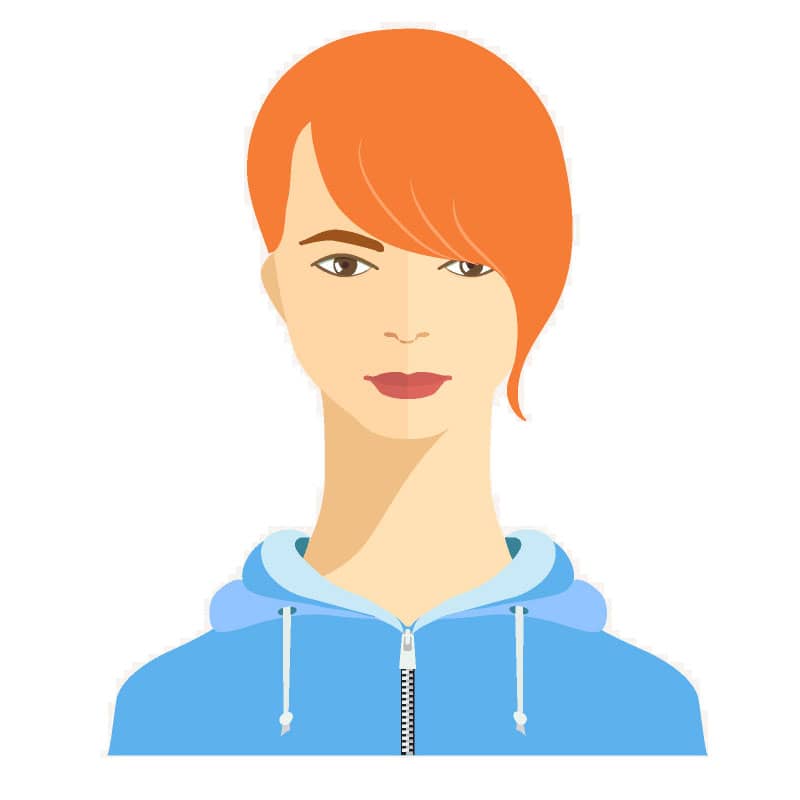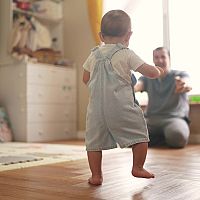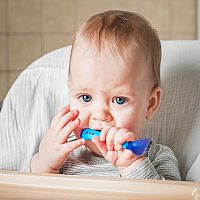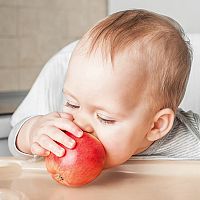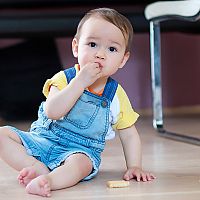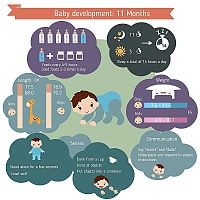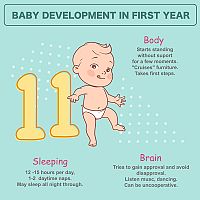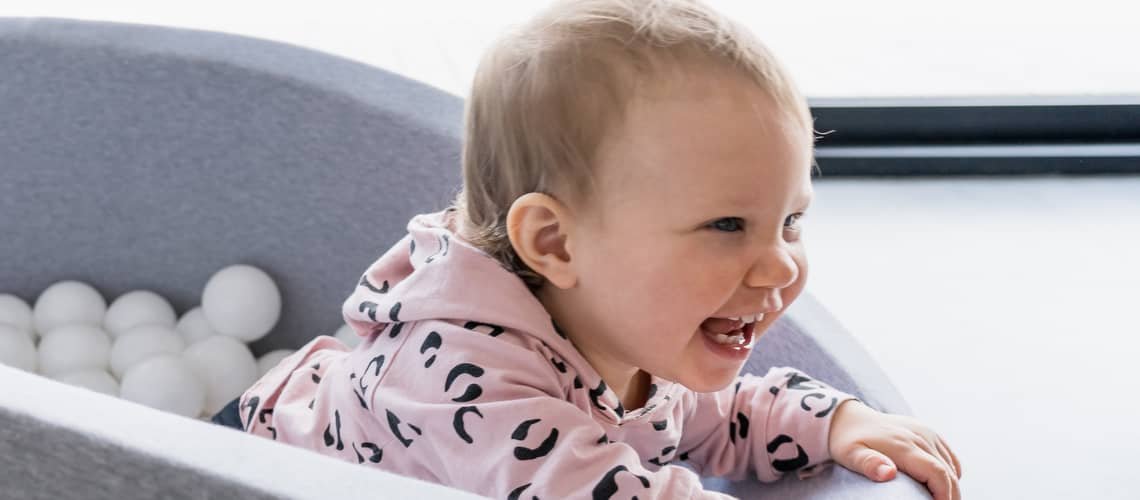
11-month-old baby (child) - development, diet, sleep, exercises, toys. See what it can do
Towards the 1-year milestone, parents can expect significant progress in their 11-month-old baby. For a child during this period, there are hardly any places that he would not like to go to, objects that he would like to see, etc. A child needs to crawl everywhere, and the smarter ones already use only two instead of four limbs to move. Walking around furniture, steps to the sides or the first solo independent steps are important phenomena in the development of the locomotor system and they can undoubtedly appear in this period. The child begins to recognize the parts of his body and can already hold a spoon or turn a page in a book as part of fine motor skills. The child begins to imitate certain actions (cleaning, sitting, bending), knows how to point and understands the meaning of certain gestures, while expressing his feelings.
An 11-month-old baby's diet is becoming more and more like yours, with some restrictions, of course. In addition to the active consumption of complementary foods, mother's milk remains important - breastfeeding, or artificial formula. A plastic spoon in the hand can already be a ritual during feeding, but independent feeding with it is not yet guaranteed to be successful. Give everything to the child, watch out for sharp and small objects, appliances and access to drawers. Sensory perception progresses and the child understands better that if the parent says "ham-ham", it's time to feed, "haji-haji" it's time to sleep, etc. Know that if you did not take the mandatory 3rd dose of the vaccine a month ago, you will be required to do so now as part of a regular visit to the pediatrician.
What can an 11-month-old baby do?
Until now, you may have puzzled over the fact that your little one just learned to stomp on all fours, lost his balance, and you preferred to chase him everywhere. Now you will be glad if you prosecute him. An 11-month-old child is able to crawl on all fours, and from a crawler becomes a climber to a walker. Although it is possible to talk about walking only at the point when the child is able to stop, change direction and at the same time avoid falling, the first steps next to the furniture or the wall may already be over (may or may not be). Two or three steps without holding on and a subsequent fall is just a "step" away from having a successful walker at home.
A child can stand for quite a long time, even without being held. While standing, the child's knees are still bent, the pelvis is tilted forward, the bottom is stuck out and the hands are in the upper position in an attempt to hold on to something. The child gains stability. Gradually, he can gain courage and take steps to the sides or move to the next object with a swinging movement. Shifting is typical - the child moves his hand while holding on to the couch, and the hand moves with a step. Some 11-month-old babies can already take a few steps without support.
At the same time, perception also develops, the child can grasp his ears, eyes, mouth, nose with his hands and can hold a spoon while feeding. Hand movements, grips and release of fists are already targeted. He starts pointing at objects with his finger. He begins to understand that if he points to an object and his parents give it to him, he can fulfill his demands and communicate in this way. A child needs to imitate the movements of adults. He sees mom washing dishes, putting things in the dishwasher or dad fixing something. His attention is focused and he tries to imitate people with his movements and body position.
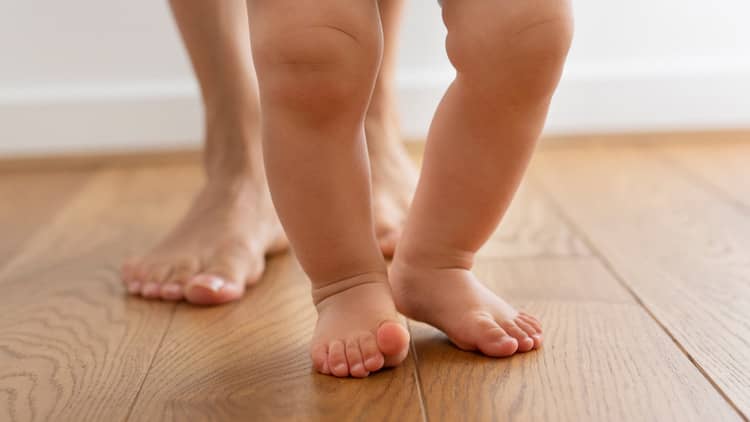
As for walking and walking, several experts still do not recommend actively wearing slippers or shoes. If the child walks at home, he will get better feeling and stability just by putting his feet without shoes. However, you definitely don't have to worry about buying your first pair of shoes. It will take some time for the child to understand the new "terrain" and master the correct posture, but training to walk in shoes belongs to the next developmental step, which can be applied even a few weeks or months later. However, if the child is not yet able to take steps forward without holding on, stop and change direction, one cannot speak of honest walking. The first independent steps without holding are not necessarily a reason to wear shoes regularly.
An 11-month-old baby does not stand on two legs
Nothing serious is happening. There are children who at 11 months are not even properly on all fours, while at 14 months they begin to stand on two legs without any major problems. Once again, it is important to emphasize that the psychomotor development of each child is different, specific, individual, and this applies multiple times in the area of walking. If it was an indicated delay, the pediatrician would recommend you to a neurologist and orthopedist for further examinations. In most cases, however, children who are still lagging behind in this area, but it is not a disease-related lag, start to catch up at a certain point, and often the progress is simultaneous and the child progresses very quickly.
11-month-old baby - senses and speech skills
During this period, the child is an explorer and an adventurer. A child wants to discover, explore and do things that adults do too. That's why he imitates them. Just the apartment or house itself is a huge playground for a child, full of games, but also dangers. Dangerous objects, breakable things, plants, stairs, etc. Parents should try to minimize the risks and look at the household through the eyes of a child who, although he perceives many things, is not yet aware of many consequences of his actions. Gradually introduce the child to dangerous objects. An 11-month-old child likes to imitate if mom is ironing, explain to him that the iron, "paaaa", burns, as does the electric oven, etc.
An 11-month-old child can express various feelings, such as anger, joy or sullenness. He can sense if you forbid him to do something. Use every single situation for communication. Name objects, explain, imitate animals, passive memory works and sooner or later the child will start repeating certain sounds, syllables or words. He begins to respond to challenges, e.g. "give me", "no-no", "kako" and the like. The child begins to understand the meaning of these words. However, this also applies to prohibitions to which the child reacts, which does not mean that he always obeys. The child often tries what he can afford and tries to assert his own, while a ban or a warning must follow immediately after an unwanted activity.
The child can already begin to perceive spatially, he perceives the shapes and dimensions of objects, puzzles with geometric shapes are a great test. I can grasp and place objects. For example, the little one now cooperates more often in dressing. He expands his vocabulary and understands more and more. "Mama, tato, baba, havo, auto (ato)", are words that gradually increase. The best way to develop senses and speech are games, nursery rhymes, poems, books or simply describing objects and activities. Always avoid diminutives and puns.
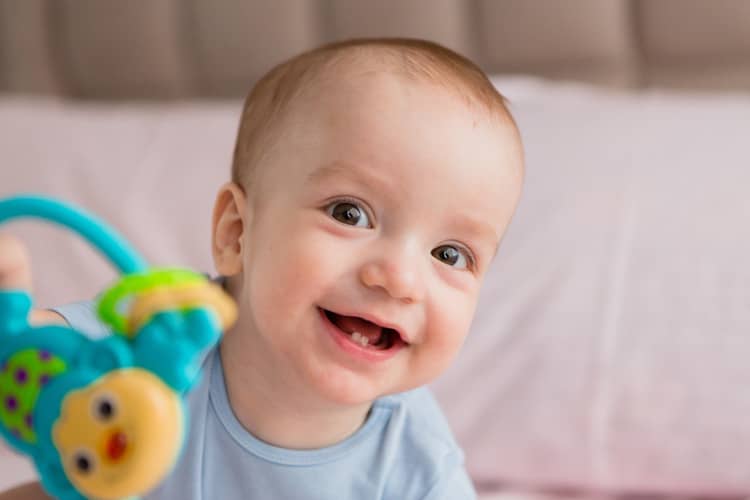
Vaccination in the 11th month
Depending on the month in which the child was given the first dose of hexavaccine, the doctor will notify you during regular visits that you are due for another revaccination. The child is vaccinated with this vaccine for the first time in the 2nd-3rd month, then in the 4th-5th month. The third dose is administered in the 10th to 11th month. It is an effective combination of vaccines against viral hepatitis B, tetanus, diphtheria, polio, hemophilic invasive infection and whooping cough. Vaccination is also effective against pneumococcal diseases. This vaccination is mandatory by law. At the same time, the doctor in the pediatric consultation will evaluate how the child is thriving, how his motor skills and sensory perception are progressing.
11-month-old child - diet
The menu of an 11-month-old baby is more varied from week to week. The child can already sit, so he has his own space for eating in the high chair. The main component of the food consists of side dishes, which no longer need to be mixed into porridge, it can easily be larger pieces of fruit, vegetables or meat. A child should have no problem swallowing them. If you are breastfeeding, continue to do so. The exact dose of milk is not determined, but 1 or 2 feedings per day will definitely suit the baby. Milk is an important source of probiotic cultures, vitamins, proteins and minerals for the child. If you do not breastfeed or for some reason this is not possible, artificial infant milk is a suitable alternative. You can even use baby milk to prepare cereal porridges - rice, buckwheat or oatmeal. During this period, it may happen that the 11-month-old child refuses milk. It can be a strike or the child simply weans itself from the breast.
You still do not salt or season side dishes. Try also larger pieces of poultry or rabbit meat. Continue to avoid foods that are difficult to digest, such as seafood or mushrooms. If you introduce new foods as part of complementary foods, after the child consumes them, do not introduce any new foods for at least 3 days in order to monitor possible allergic reaction. The child has more and more teeth and can already chew food. The drinking regime does not only consist of milk, but also teas and pure water. Home- pressed fruit and vegetable juices are also great - apple, carrot, grape, pear and the like. You can, of course, also buy them in stores. Beware of unsuitable preservatives, artificial sweeteners or dyes. Only buy juices intended for infants. As we mentioned above, motor skills are progressing, so don't be afraid to give your baby a plastic spoon during feeding. Although hitting your mouth will still be largely unsuccessful, practice makes perfect.
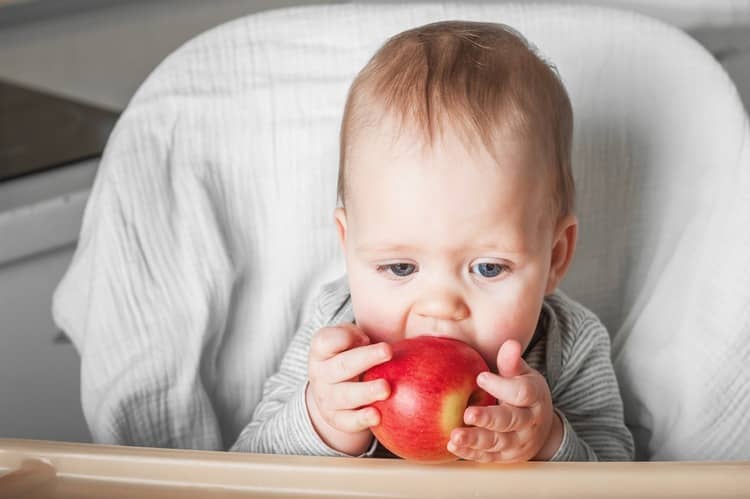
Sleep and toys for an 11-month-old baby
For some children at this age, sleep is as changeable as the spring weather, while for other children the regime is relatively stable, but sleep can be disturbed by various phenomena. On average, the child already has only 1 or 2 short sleep cycles during the day, which should not last longer than 3 hours in total. Why does an 11-month-old child often wake up at night ? The reason may be teeth that are still cutting, and an accompanying symptom may even be an increased body temperature. A typical symptom of the growth of milk teeth is increased nervousness, crying and weakened immunity, which can result in the onset of other diseases. The child may also wake up from hunger, cold or excessive heat.
The best solution to prepare a child for sleep during the day is to tire him. Various games and toys for 11-month-old children will help you in this uneven struggle. Already a few months ago, suitable toys are picture books, interactive books with sound effects, smart toys for children, geometric puzzles, building blocks, inserters, a rocking horse or even a bouncer (mostly recommended only after 1 year). The child adores hide and seek or games while bathing. Sing songs, say nursery rhymes, play them quietly and sing along to the "playback". Don't forget active communication, naming objects, making sounds, imitating animals. Put the child in front of the mirror and point to his body parts. The child likes to imitate. Buy him a set of DIY tools for children or a children's kitchen. Play theater with toys, play cleaning toys. Games also stimulate the child's psychomotor development.
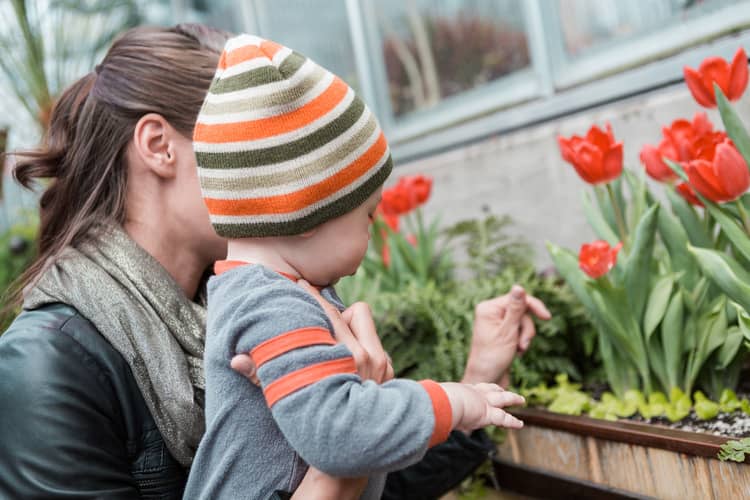
The most frequent questions - FAQ
Are you parents or are you planning to become one and are you interested in this issue? We will be happy if more experienced parents share their own experiences with the development of the child. Despite the fact that the development of each child is individual, we will be grateful if you join the discussion under the article and contribute your experiences. What can your baby do at 11 months? What do you do if an 11-month-old doesn't want to eat or avoids sleeping? Do you have an interesting story or incident with your little one? Share your experiences with us and other moms and dads.
What can an 11-month-old baby eat?
Why does an 11-month-old child often wake up at night?
Why does an 11-month-old baby refuse milk?
What weight should an 11-month-old baby have?
How to play with an 11-month-old baby?
Gallery
Pridať komentár
